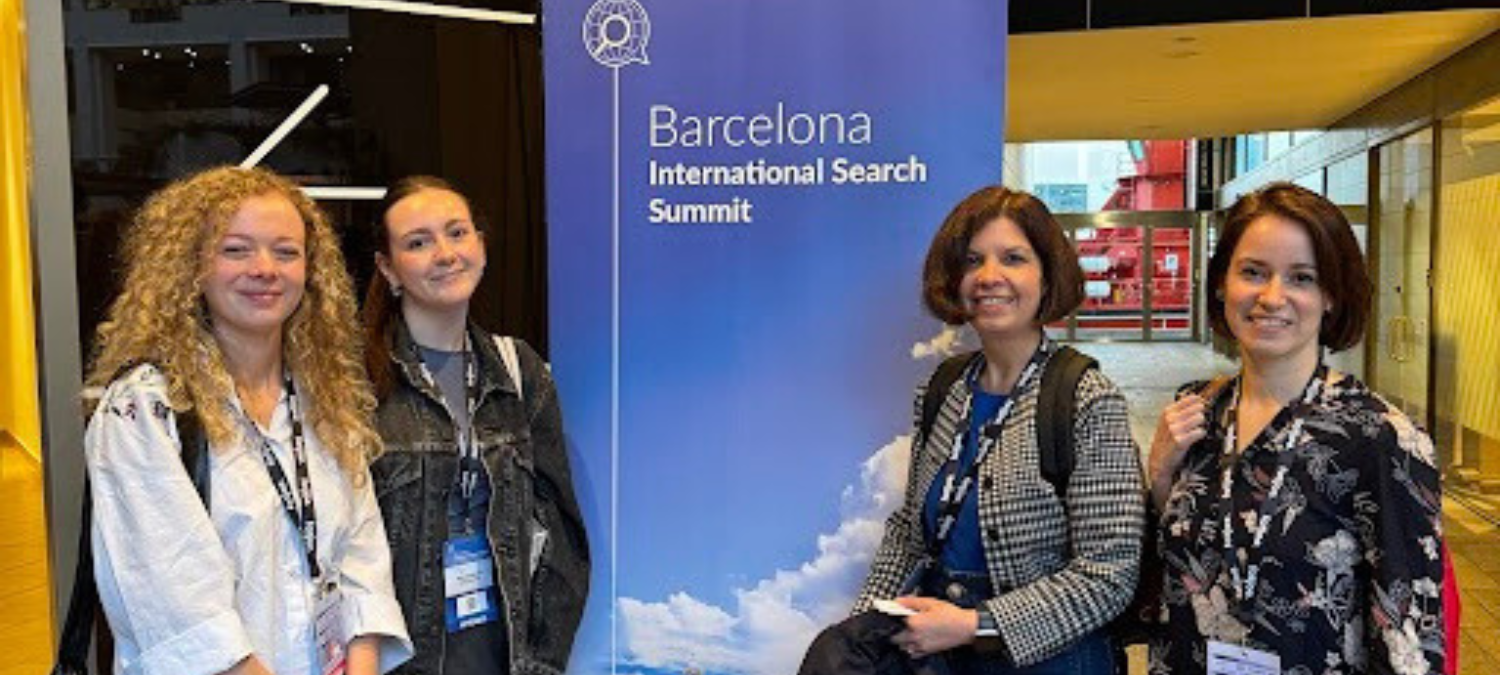The 2024 International Search Summit Recap
Last week, some of the Serps team and I were lucky enough to visit Barcelona for the 2024 International Search Summit. As experts in International SEO, PPC and Content, this conference is right up our street, as it’s currently the only conference solely dedicated to international search marketing.
This year didn’t disappoint. With sessions on everything from the future of search and the influence of AI, to in-depth discussions on specific topics like hreflang tags, use cases for Google Search Console and more.
Here is a round up of some of my favourite sessions from the day.
Harmonising SEO and PPC
The first session of the day was presented by Navah Hopkins. Delving into how SEO and PPC can work together to deliver our clients results.
Often seen on opposing sides of the SERPs, the 2 disciplines have traditionally worked in isolation, competing not just for budgets but sometimes even ranking space in the SERPs. However, Navah demonstrated that when we work together, we will achieve better results.
The only way to do this is by collaborating. Thankfully, at Serps this is something that we already do and our PPC and SEO teams meet regularly when working on combined projects. However, Navah gave some more practical tips and ways in which we can share performance data, use PPC data for SEO competitor insights, use SEO to improve PPC Quality Scores and more.
Making Google Search Console Work For You
The next session was presented by Natalia Witcyzk. This session was a deep dive into how to set up and best use Google Search Console, specifically for our international clients. Again, this session included really clear and actionable takeaways that we can now use in our every day work, such as setting up properties for individual sub-folders to get more detailed views on the data, as well as how to use API to overcome GSC’s 1k limitations.
Hreflang Tags – For or Against?
Delving into the technical side of SEO, Carolyn Shelby’s presentation explored the very important but often misunderstood, or misused, hreflang tags.
This was a great session for anyone struggling with how to handle hreflang implementation for multi-regional websites, presenting different use cases for when it can be a benefit and when it can also be an unnecessary complication.
Additionally, she also raised the question on how the Chat GPT chrome extension (which recently released in the US) could impact regional search results, as it appears to automatically translate content from sites even if they don’t provide content in the user’s native language.
Bringing Brand and SEO Together

SEO is occasionally perceived as being in opposition to Brand. Historically, the SEO team stuffed keywords into copy, throwing the brand team’s tone of voice guidelines out the window; and on the other side of the coin, the brand team’s tone of voice guidelines were too abstract for SEO, not allowing for the inclusion of phrases the user is searching for, especially when localising content.
However, as Kerry demonstrated, that doesn’t need to be the case. When clear communication, guidelines and compromises are made on both sides, branding can help to make an SEO content strategy stand out and work for the brand, the user and Google (particularly in the age of AI mass generated content).
Forecasting SEO Results
One of the age-old difficulties of SEO is forecasting, as when we are understandably asked by clients what results they can expect, the most honest answer is, it depends. But as James Brockbank demonstrated in his presentation, that answer isn’t helpful for the client or the agency.
Instead, he presented his proven methodology for accurately forecasting international SEO results. This is something we have been working on a lot recently at Serps, and we’ll be looking to see how we can integrate some of James’ insights and recommendations into our own forecasting methodology.
What Do the SERPs Look Like Now?

My final favourite session of the day, ‘International e-commerce organic search trends in 2024’ was presented by Aleyda Solis.
Between AI overviews, personalised results, product carousels, deal destinations, knowledge panels, other featured snippets and more, it feels like the SERPs are changing more than ever. Aleyda’s enthusiastic session managed to highlight the scale of these changes, whilst also putting things into perspective and raising some of the key factors that allowed the top ranking e-commerce sites to appear where they were.
One of the most interesting findings presented was the different results for different locations. For example, the Australian SERPs still appear fairly traditional compared to the US results which include AI overview, product carousels, deal destinations and more, putting traditional SERP results (blue links) well below the fold. So a localised approach is becoming more important than ever.
There was also a clear differentiation between the perceived search intent depending on the market. Interestingly, even though many of the keyphrases in the e-commerce sector obviously have transactional intent, Google is increasingly ranking informational content alongside product pages. Indicating that users are more interested than ever in researching their purchases. What can we take away from this? Ensuring that your content strategy services all stages of the marketing funnel / buyer’s journey.
These were just a couple of the takeaways from a jam packed session.
Overall, the conference was a great experience full of lots of learnings that we’ve taken away to integrate into our client’s SEO, Content and PPC strategies. Looking forward to the next time we’re lucky enough to attend! In the meantime, see Beth’s round up of the event to learn about some of the other sessions.

